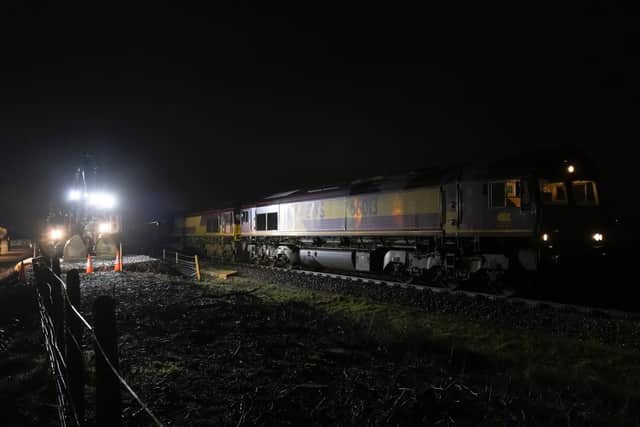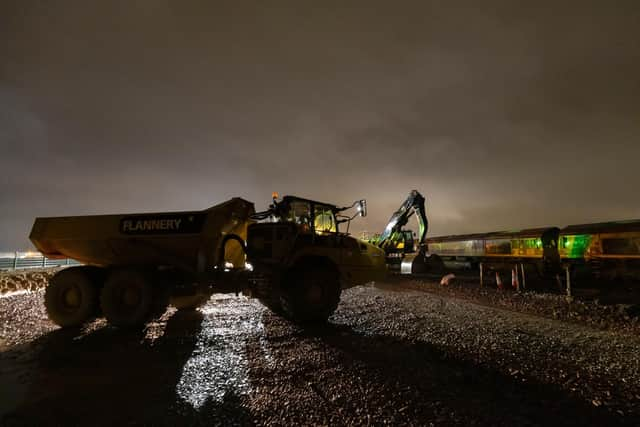Aylesbury freight trains take extra 28,000 HS2 trucks off Bucks roads
and live on Freeview channel 276
HS2 Ltd has confirmed it will be using its freight trains to shift materials to construction sites near Aylesbury.
Projections suggest that the move will take the equivalent of an extra 28,500 lorries off Bucks roads, saving 9,680 tonnes of carbon emissions.
Advertisement
Hide AdAdvertisement
Hide AdThe move has been confirmed as a measure to limit traffic and travel disruption during the project to the West of Aylesbury.


HS2 has already run more than 500 freight trains into its site at Calvert since the first railhead opened in December 2020.
It will be the opening of a new facility on the Princes Risborough line which will allow a further 285,000 tonnes of aggregate, needed for construction, to be delivered over the next four months.
HS2 Ltd’s senior project manager, Paul Marshall said: It's important that we cut the amount of embedded carbon in construction and work to reduce the number of lorries on local roads.
Advertisement
Hide AdAdvertisement
Hide Ad“That’s why I’m really pleased by the progress we have made – working closely with Network Rail, EKFB and the Rail Freight Operators – to deliver more material by rail to our construction sites across Bucks.”


The construction of the central section of the HS2 project - through Buckinghamshire, South Northamptonshire and Oxfordshire - is managed by HS2’s main works contractor, EKFB.
A team made up of Eiffage, Kier, Ferrovial Construction and Bam Nuttall. EKFB is delivering 80km in total, including 17 viaducts, 81 bridges, three cut and cover ‘green tunnels’ and are set to create 3,000 jobs over the next two years.
The trains into Calvert were operated by DB Cargo and Hanson, which will also be operating the railhead into Aylesbury.
Advertisement
Hide AdAdvertisement
Hide AdAn HS2 spokesman said: "Across the whole HS2 project, 15,000 freight trains are set to be used to haul 10 million tonnes of aggregate to construction sites – taking the equivalent of 1.5 million HGVs off the UK’s roads."